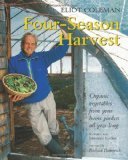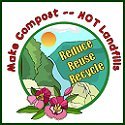You are here:
Home > Trees > Sweet Gum
Sweet Gum
Liquidambar styraciflua
Price Each
$22.95

Sweet Gum:
The Sweetgum tree, Liquidambar styraciflua, is a rapid growing shade tree usually grown for its excellent fall color. It has an upright pyramidal growth habit in its youth and then becomes spreading, irregular and open as it ages. The star shaped lustrous dark green foliage turns a spectacular fall color, often a combination of green, yellow, orange, red and purple foliage, but sometimes solid crimson, burgundy or scarlet. The Sweetgum tree usually does not flower or fruit for the first 15 to 20 years. It prefers full sun and can grow to 60 feet high and 40 feet wide. The Sweetgum tree has landscape value as a shade, specimen or focal point tree. Sweetgum trees are an excellent lawn, park, or street tree. Birds like the seeds it produces. The bark has a corky appearance. It has spectacular colors, is fast growing, and has great shade.

FREE Garden Journal!!
Join "Garden Notes" and plan for Harvest Success as you track and record your gardening progress.
Your Free Personal Garden Journal has pages for jotting down notes on the seeds you start,
your new plantings, when you fertilized, and even a graph to plot a new garden.
What's New?
"Organic food has a higher nutritional value than ordinary produce, a study by Newcastle University has found."
"A team grew fruit, vegetables and reared cattle on adjacent organic and non-organic sites across Europe.
They found up to 40% more antioxidants could be found in organic fruit and vegetables than in non-organic.
The team said the findings call into question the current stance of the Food Standards Agency (FSA), which is neither for nor against organic food."
Organic Food Gardening Guide
Free
Gardening Catalog
Click Here
Book of the Month

A book full of valuable information on how to harvest fresh vegetables and salad
ingredients literally year-round--yet without an expensive greenhouse or indoor light garden set-up.
Coleman combines succession planting (small sowings three or more times, rather than
one big endeavor) with cold-frame growing in the winter months. He includes how-tos for building simple cold-frames.
Read More...
Garden Tip of the Day









